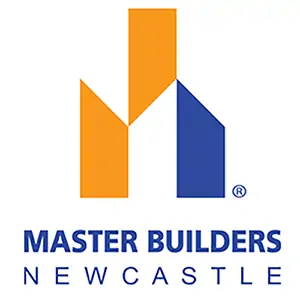Your question is not covered here? Get in touch with us here and we’ll get back to you within 24 hours. Guaranteed!
There are a number of costs and fees that you will need to pay before you even commence construction. They are listed in a sequential order below. Please note this is just a guideline and each project is different.
Guideline of Building Fees/Costs
For an average $200,000 extension/renovation the following costs could be used as a guide:
Building Plans* between $4000 – $7000
DA Lodgement Fees** – $2000
Engineering Plans between $1500 – $3000
Private Certifying Authority (PCA) approximately $2000
Long Service Levy*** – $700
*This is a figure for using a draftsperson. We encourage people to use an Architect (Yes, they could be double this price). However, you will ultimately end up with a much better design and plan, which will make the build go smoother and could potentially save you tens of thousands of dollars because of using a greater knowledge of design practices.
**This is expressed as a percentage of the total project cost.
For example if your renovation is $250,000 the DA fee is $2500
$100,000 or less = NIL
$100,000 – $200,000 = 0.5%
200,000 or more = 1%
***The current levy rate is 0.35 % of the value of building and construction works costing $25,000 or more (inclusive of GST).
Please note this is just a guideline based off our experience and past projects. We strongly encourage people to obtain quotes for all steps along the process.
BASIX requirements are mainly related towards:
– Insulation
– Correct glazing in windows
– Correct shading over windows
– Water saving tapware
– Collecting and storing stormwater for re use in laundries, toilets and gardens
The BASIX® Certificate or BASIX® (The Building Sustainability Index), is a NSW Government planning requirement that affects anyone submitting a Building Application in NSW for a new house, alteration, addition, villa, townhouse, units, plus a swimming pool or outdoor spa.
Operating as a web-based tool, BASIX® is used to assess each new application against specific energy and water reduction targets. BASIX® means every new home, alteration or extension built in NSW will be more comfortable to live in and cost less to run, and each swimming pool or outdoor spa will meet specific BASIX®requirements for water and energy consumption.
The BASIX® tool is used to calculate the house or unit’s energy and water scores based on a range of data, including size, location, design features and fixtures.
Once the necessary commitments have been met, a BASIX® Certificate is generated which lists the schedule of commitments for your application. All the commitments listed on the BASIX® Certificate must be indicated on the architectural plans.
Independent research shows that owners of new homes which comply with BASIX® can slash household water and power bills by up to $600 a year on average.
Overall, the BASIX® Certificate is a NSW Government initiative that ensures new homes are designed and built to use less potable water and produce fewer greenhouse gas emissions, with the purpose of providing a sustainable future.
PCA stands for Private Certifying Authority
A PCA is engaged once you have received development approval. A PCA reviews your architectural plans, engineering plans and relevant DA documents and provides a construction certificate (CC).
The PCA attends critical stage inspections throughout your project (Pre-slab, storm water, framing, water proofing etc).
They also complete a final inspection and collect all certificates from the builder (compliance for water proofing, stairs, glazing, shared wall etc).
Upon inspection being satisfactory they provide an occupation certificate (OC).
The cost of the PCA will depend on the size of your project and how many critical stage inspections you require.
The New South Wales Parliament has put a levy on building and construction work costing $25,000 and above (inclusive of GST) in New South Wales. The levy is paid into a fund administered by the Long Service Corporation, and from this fund, the Corporation makes long service payments to building and construction workers.
The Levy is payable for building and construction projects costing $25,000 and above (inclusive of GST) and is payable online, at local councils or direct to the Corporation.
For work requiring approval by a consenting or certifying authority (local council, private certifier and/or government body), the consenting or certifying authority may determine the cost of the work for the purpose of calculating the levy payable or else the cost of the work is the contract price. The Corporation may also determine the cost of the building work where there is no contract price or the building work does not require approval by a consenting or certifying authority. The current levy rate is 0.35 % of the value of building and construction works costing $25,000 or more (inclusive of GST).
There is no set square meter price for custom builds or renovations. Each renovation or extension is bespoke. The best way to get an idea on cost for the project is – set a budget you are comfortable with.
Spend time to think about what you want vs what you need. A professional builder will be able to tell you confidently what is achievable for your budget.
For more information Click Here to check out this article we wrote!
There are a number of costs and fees that you will need to pay before you even commence construction. They are listed in a sequential order below. Please note this is just a guideline and each project is different.
Guideline of Building Fees/Costs
For an average $200,000 extension/renovation the following costs could be used as a guide:
Building Plans* between $4000 – $7000
DA Lodgement Fees** – $2000
Engineering Plans between $1500 – $3000
Private Certifying Authority (PCA) approximately $2000
Long Service Levy*** – $700
*This is a figure for using a draftsperson. We encourage people to use an Architect (Yes, they could be double this price). However, you will ultimately end up with a much better design and plan, which will make the build go smoother and could potentially save you tens of thousands of dollars because of using a greater knowledge of design practices.
**This is expressed as a percentage of the total project cost. For example if your renovation is $250,000 the DA fee is $2500
$100,000 or less = NIL
$100,000 – $200,000 = 0.5%
$200,000 or more = 1%
***The current levy rate is 0.35 % of the value of building and construction works costing $25,000 or more (inclusive of GST).
Please note this is just a guideline based off our experience and past projects. We strongly encourage people to obtain quotes for all steps along the process.
Click below to complete our contact form or call our office on 02 4960 9894 and let’s kick off your renovation journey.
WALKOM CONSTRUCTIONS
Address : Unit 15 / 54 Clyde Street Hamilton North NSW 2292
Phone : 02 4960 9894
Licence No. : 271415C

